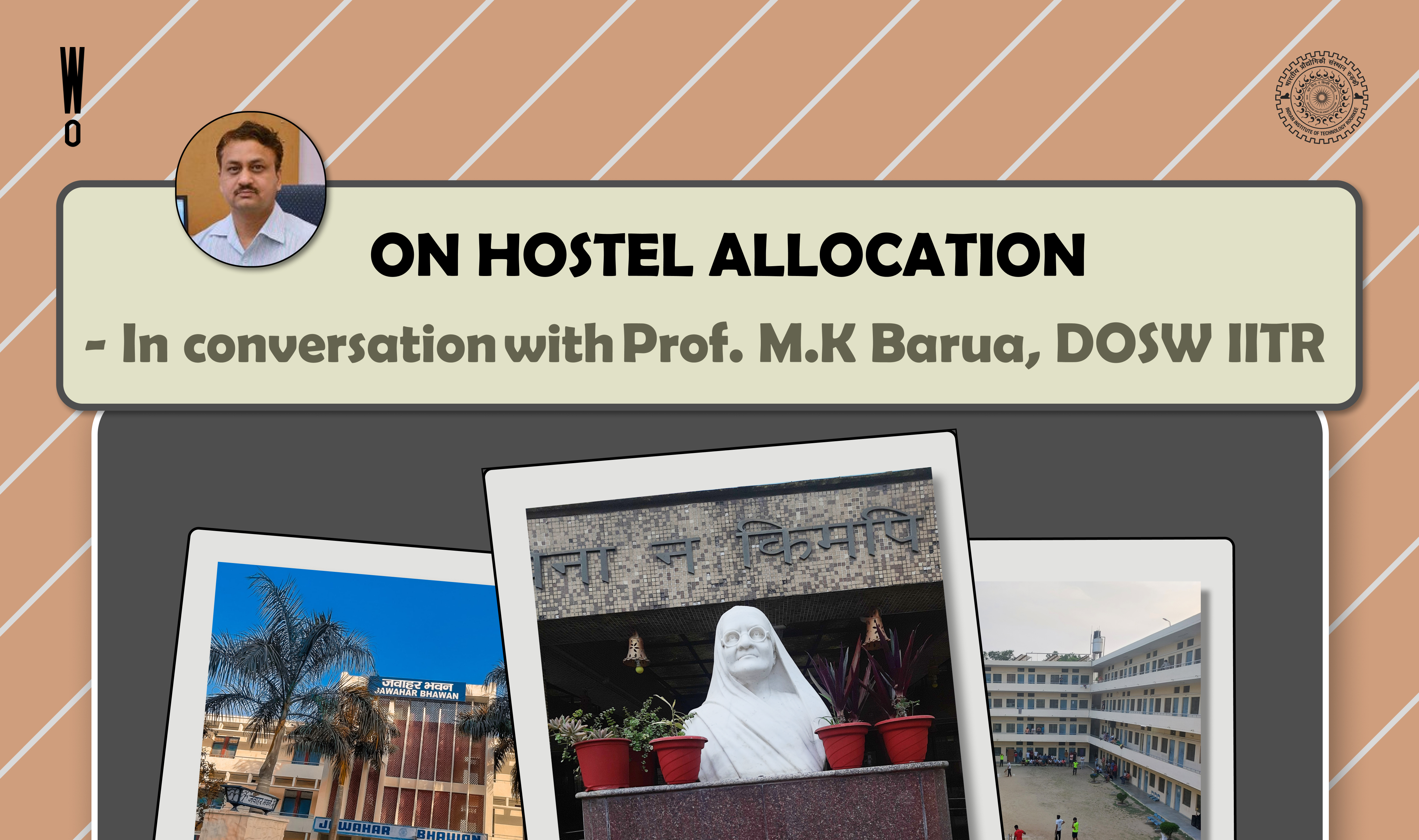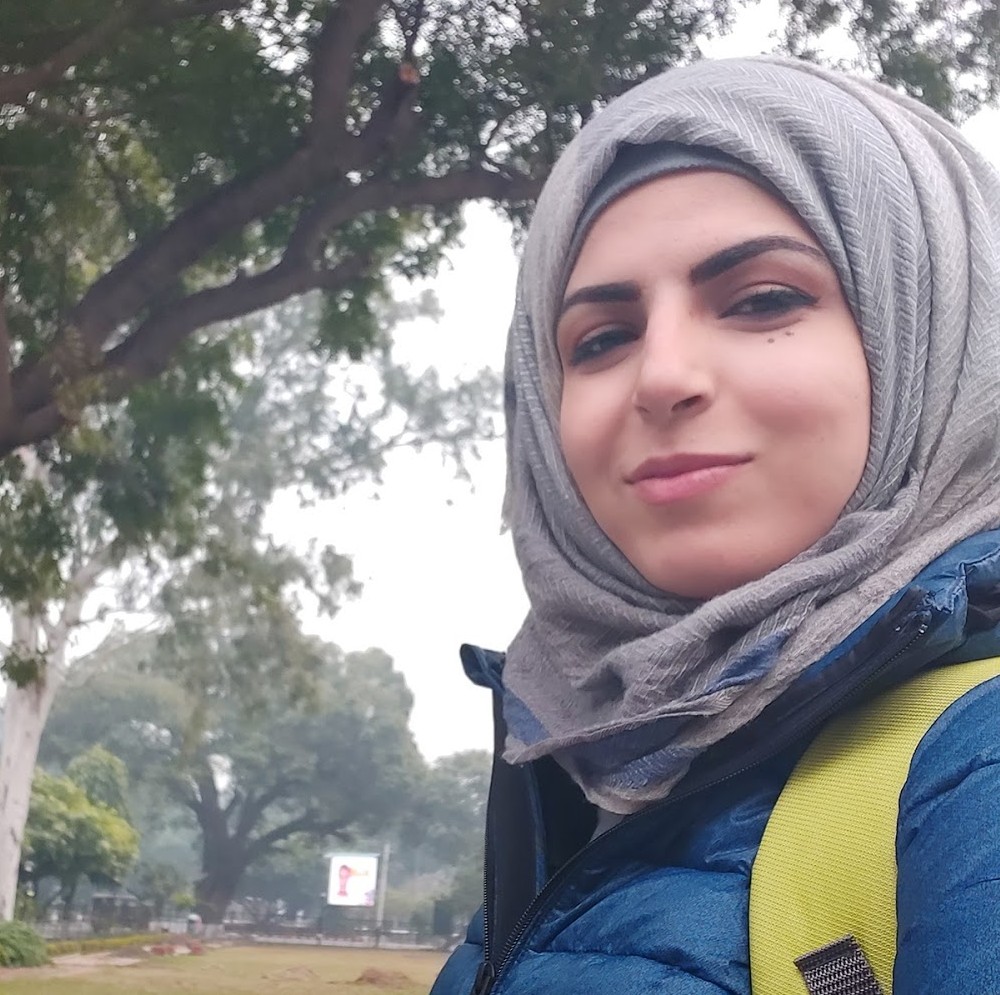

Body of IITR

IITR is considered to be one of the best IITs with regards to outreach and inclusivity. The international students constitute a growing population at the institute and yet, there seems to be little interaction with the local student populace. The different communities choose to stay within themselves, often finding it hard to overcome the barriers of communication. Bridging the cultural gaps between schools and international students is seen as a stepping stone to building a strong community of learners. Greeting the International Students in R-land, WatchOut presents to you an Interview of Maram, a young independent girl from Syria, currently in her first year of PhD at IITR.
WO: Is coming here for your higher studies a part of a government programme or is it a personal venture?
Maram: I initially came here for my M.Tech. in the Computer Science department as a student under a cultural programme by the Indian Government. My country, Syria, was a part of this program which is called the ICCR. This program offers meritorious students good opportunities to continue their education in India with the fee waived with a monthly stipend. Now, I continue as a PhD student with funding from my country.
WO: What are the fundamental differences in the education system of both the countries?
Maram: Education in Syria is really good, but the basic layout of education here is a bit different. When I came to India, I realised that education here, at least in my branch, demands strong mathematical foundation and focuses on theoretical aspects as well which is a stark contrast against the focus on practical education in Syria. Also here the professors are well qualified and helpful. I haven’t found the study here very difficult because of these factors, I even finished my M.tech with a CGPA of 8.8.
WO: The sex ratio in our college, being a technical institute is pretty low. How is the status in Syria?
Maram: Yes, I have noticed that the sex ratio is quite low here, in my M.tech class there were only 10 girls opposed to 35 boys. I feel that though the girls are less here, all of them seem to be very ambitious and intelligent girls, placed in top companies, like Microsoft and Intel. I hope to see more girls, and as I have heard about the reservation programme in IITs, I think it will encourage more parents to send their daughters for higher education at such top-class institutes. In Syria, the girls share the same ambition with the Indian girls. Education is free for all citizens until the graduation of highschool so girls get a fair chance in every domain especially in education and job opportunities. We are a country of small population afterall.
WO: What is the best and the worst thing about living here?
Maram: IITR has a special place in my heart, which is why I even applied for PhD here after completing my M.Tech. Roorkee is less polluted as compared to Delhi and the weather too is better as compared to Bombay. I would like to say that the International Relations Cell is doing a great job here in trying to make international students feel like home, trying to make them more involved in the student community. One of the best things about here is the hospitality offered by the people around. One thing I dislike is the spices in food. In my first year I fell sick as I faced a major problem with the food. Soon, I adjusted to it. Earlier, when there were less international students, I was unaware about the various restaurant options outside the campus. They have even opened a new food court in MAC, it’s extremely cool. Nowadays, I mostly like to go to Desi Tadka and Olive. Utopia, inside the campus is also a good option. When there is a special occasion, we go to Rustic House. My favourite dishes are Dosa and Chicken Malai Tikka. They are very delicious and I’m planning to take the recipe back home with me.
WO: What are the barriers faced by international students in interacting with different communities and Indians?
Maram: I believe that the language barrier is the most difficult one. I consider myself to have a good fluency in English as compared to many other students. I have seen many of my friends struggling in this aspect. English is not our language and we need to put in extra efforts to learn it to comprehend things here and communicate. I have noticed that mostly Indian students prefer their mother tongue which is an understandable thing and the most widely spoken language between them is Hindi. They do talk to us in English but that’s still not easy for us as not all of us are very proficient in English. Also, some of the International students prefer to stay within groups among themselves because of this language and cultural differences. However, the situation is being looked upon by the International Relations office as they are working to improve this aspect, by maybe organising some activities to increase the interaction and bring us all together.
WO: Are you aware about the various campus groups?
Maram: Yes, I am aware about the different campus culture and technical clubs. I am myself a part of the Wellness Centre in the category of Bhawan Wellness. I sometimes go to the students’ club to play snooker. As far as the technical groups are concerned, I find it hard to make it there as they are primarily focused on B.Tech students. I do attend the different activities that happen there and enjoy looking at the robots made by them or the intelligent musical instruments. There are quite a few fascinating projects being taken up there and I even saw the drone built by them once. This December, I even attended the Inter-IIT Tech Fest held here. IITR presented drones were made by the students here during the event, but unfortunately there were some technical difficulties since to be fair it is a complicated problem. It was very clear that they put a lot of effort into it. I heartily congratulate them for all the good work they do on the technical side!
WO: How are the living facilities here?
Maram: I live on campus, in the Himgiri Apartments. It is a part of the campus but outside the campus. It is 1BHK, has decent living facilities, and is very comfortable. I find it much better than my first year, when I had to live in Kasturba. I didn’t like the room there much and I had to live alone. However when I was living in the hostel, I had more chances to interact with other students, get involved with them and have our meals together. However, I faced a medical issue in my first year with regards to the food and spices here. Our food is very different from the Indian cuisine, so much so that there is nothing in common. When I moved to Himgiri, I had to cook my own food, my national food and I was able to restore my health. Other than that, interacting with the girls in the hostel was a pretty cool experience.
WO: Have you been to Syria after you came here?
Maram: Unfortunately the current condition in my country is not that good, besides the study pressure here, which makes it hard for me to go there often. However, after 2 years from my arrival here, I went there for a month during the summer vacation. It wasn’t very easy for me to go and come back from there.
WO: Would you like to suggest something focusing on the international students here which can be taken up by one of the college groups to integrate the international students?
Maram: Yes, it would be great if there are some social events and contests between International students and Indian students. Not particularly something technical, but anything as simple as a sports matches or cooking contest. The aim will be to have fun, enjoy and have healthy interactions. It will be a good platform for both parties to get to know each other. Something like this can be an ice breaking session of sorts.
WO: Which places have you visited around Roorkee?
Maram: I have been to Rishikesh, Ganga Canal, Mussorrie and even Dehradun. Rajasthan and Taj Mahal were magical places that I will never forget. I also went to the Nag Tibba trek last year and it was really fun.